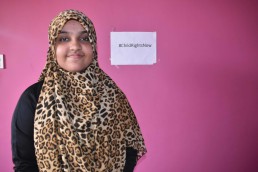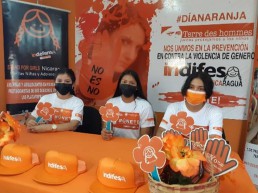Fighting for Equality
1. Pakistan
| Lyari Girls Café | Terre des Hommes Germany
The Lyari Girls Café in Karachi, Pakistan, provides a unique safe space for girls to engage in meaningful leisure activities and to exchange ideas. More than 2,000 people lost their lives in a war between rival gangs in Karachi, Pakistan, from 2005 to 2014. Children lost out on education when schools closed and many could not leave their homes due to safety concerns. The consequences are still very much present today with high poverty and many families struggling to survive daily.
Children in Karachi lack safe spaces for meaningful leisure activities and a place to exchange ideas and find help to address their problems. The Lyari Girls Café is the only space where girls can meet safely in the neighbourhood.
Girls are now seen cycling in the district often and 320 girls in the programme have access to computer courses and other sports.
Learn more about the Lyari Girls Café project.

Cycling is fun and we get to school faster and safely. At first, some people laughed and a few boys from the Koran school threw stones at us. We talked to them and explained to them that we also have rights. Now they leave us alone.
2. Nicaragua
| Stand for Girls | Terre des Hommes Italy
The Stand for Girls project aims to tackle the severe problem of violence and discrimination in Nicaragua against women and girls, which is widely accepted in Nicaraguan society. In 2021, there were as many as 71 femicides and in its latest 2019 report, the Nicaraguan Ministry of Health reported that 1,740 children were born to mothers aged between 10-14 as a result of sexual violence. In 2021, according to the Institute of Forensic Medicine, girls and adolescents were the victims in 76% of sexual abuse cases.
To tackle the problem, Stand for Girls promotes the rights of women and girls and influencing change in the perceptions and behaviours of young people. We created training sessions with 300 girls and young women aged 12-28 on the Convention on the Rights of the Child and women’s rights. Given that women and girls have little opportunity to exercise their rights in Nicaragua, the project created space for participation in local and national media broadcasts. In response to the school closures, special training for teachers was organised to provide distance education. Teachers were able to adapt their curriculum to different modalities (virtual, paper-based homework) and organised regular follow-up of students by phone and home visits to keep them motivated.

